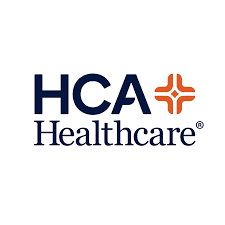
Editor's Note A Johns Hopkins team is reporting unprecedented success in preventing pancreatic cancer recurrence by combining pre-surgical and intraoperative radiation focused on a key anatomical area near the pancreas, News Medical Life Sciences October 30 reports. Citing a Johns Hopkins Medicine preliminary study, this approach reportedly reduced recurrence around…
Editor's Note Transparent communication, humility, and swift action are essential for effective service recovery in perioperative services, said Leiran Cornish, MBA-HM, BSN, RN, director of nursing, Dartmouth Health Outpatient Surgery Center, and Patrel Nobles, MSN, RN, NE-BC, CNOR, system senior director, surgical services, Valley Health. Their session explored how nurse…

Editor's Note Robotic-assisted cardiac surgery is reshaping the field, enabling safer, less invasive procedures once deemed too complex for minimal-access techniques, the American College of Surgeons October 1 reports. Advances in high-definition visualization, wristed instruments, and surgical control are allowing cardiothoracic teams to perform intricate repairs through incisions often smaller…

Editor's Note Cesarean delivery remains the most common major surgery in the US, but new evidence highlights its impact on recovery, pain, and sleep health for mothers. In an American Medical Association (AMA) interview published by HCA Healthcare Today on October 10 and new research presented at the ANESTHESIOLOGY® 2025…

Editor's Note Artificial intelligence (AI) and evidence-based fasting practices could significantly enhance safety and comfort for children undergoing surgery, according to research presented at the ANESTHESIOLOGY® 2025 annual meeting that took place on October 10–14. One study found AI systems outperform standard methods in key pediatric anesthesia tasks, including selecting…

Editor's Note Patients’ social conditions, language, and sleep patterns may play a larger role in surgical recovery than previously recognized, according to three studies presented at the ANESTHESIOLOGY® 2025 annual meeting that took place on October 10–14. Researchers from the University of California, San Diego, found patients facing food insecurity…

Editor's Note Hospitals adopting perioperative patient ambassadors are seeing major gains in surgical communication, patient trust, and satisfaction, AORN August 18 reports. An EIN Presswire release on September 30 also highlights AORN’s call for hospitals to formalize the patient ambassador role as part of the surgical team. AORN notes that…

Editor's Note The Perioperative Nutrition Screen (PONS) identifies patients at greater risk of complications following pancreatic cancer surgery, according to a retrospective analysis published August 27 by Research Square. The study found that patients flagged for nutrition risk by PONS experienced longer hospital stays, higher complication rates, and were more…

Editor's Note Remote perioperative monitoring (RPM) accelerates recovery and reduces complications following major cancer surgery, according to a randomized trial published on August 28 by npj Digital Medicine and co-authored by researchers at the University of Miami Miller School of Medicine. The study enrolled 293 patients undergoing major abdominal or…

Editor's Note Many widely used supplements and herbal remedies can increase bleeding risk during surgery and should be stopped in advance, according to researchers at Wrocław Medical University. The findings highlight a gap in perioperative safety practices, The Am-Pol Eagle September 18 reports. The study, led by the university’s Department…